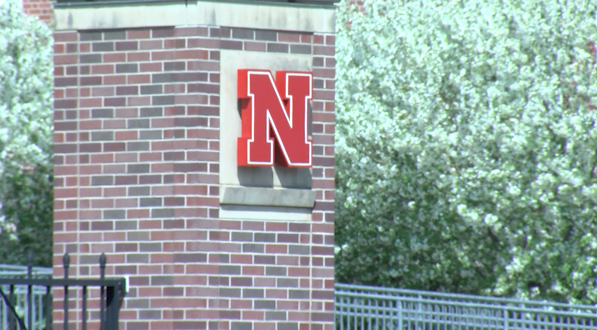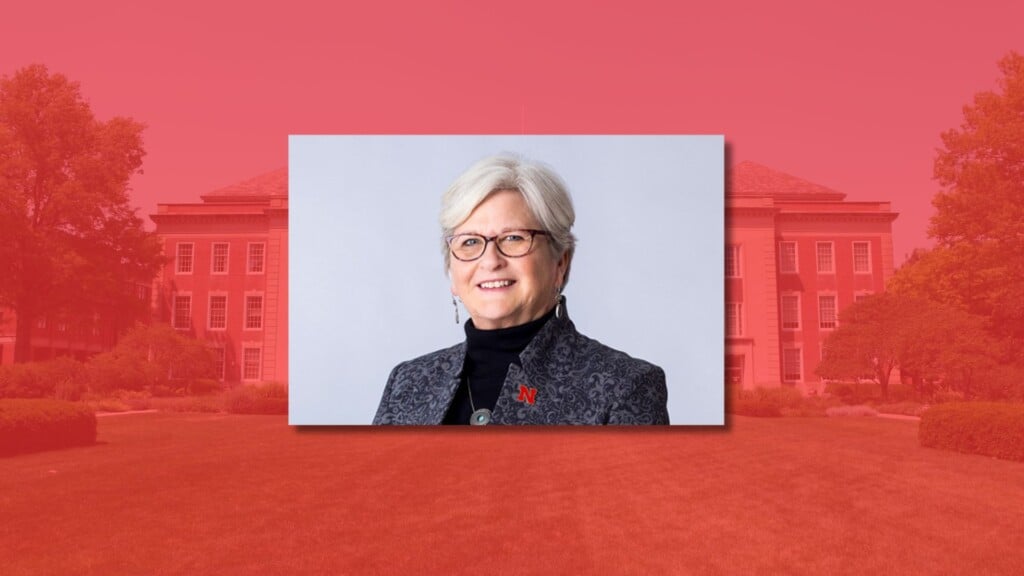UNL puts six academic programs on the chopping block amid $27 million budget shortfall

LINCOLN, Neb. (KLKN) — University of Nebraska-Lincoln Chancellor Rodney Bennett on Friday revealed proposed budget cuts to the university.
The university is cutting $27.5 million to account for various economic hardships.
Last month, Bennett said UNL’s revenue has not kept up with its expenses.
Bennett blamed “downward trends” in state funding and tuition, along with “historically high inflation” of health care costs.
In a letter to the Academic Planning Committee on Friday, Bennett outlined the plan for proposed cuts to academic programs.
Six academic programs are proposed for elimination for a total savings of $7.7 million.
| Academic Program | Savings | Reasoning |
|---|---|---|
| Earth and Atmospheric Sciences | $1,850,000 | The academic department and all programs will be eliminated. This includes the BS in Meteorology and Climatology, the BS in Geology, the MS in Earth and Atmospheric Sciences, the PhD in Earth and Atmospheric Sciences, and the associated graduate minors. A portion of state-funding will be retained to strategically support faculty whose teaching, research, and service align with the needs and priorities of Nebraska. Select courses supporting federal requirements for meteorology careers, and the undergraduate minors in meteorology and geology will continue to be offered. Bachelor's degrees in Geology are offered at the University of Nebraska at Omaha. Budget reductions will be achieved through the elimination of positions (13 FTE). Note: The APC recommended against this elimination. |
| Educational Administration | $1,690,000 | The academic department and all programs will be eliminated, except the MA in Educational Administration will be retained elsewhere in the college. Online degrees in Educational Administration are available at the University of Nebraska at Omaha and University of Nebraska at Kearney. The PhD in Educational Administration at UNL is the only one in the state, however, the EdD degree is the primary credential required for principals and superintendents as well as community college presidents. Budget reductions will be achieved through the elimination of positions (15.5 FTE). Note: The APC supported the recommendation to make this elimination. Based on feedback received, the total budget savings has been reduced by $260,000. |
| Statistics | $1,750,000 | The academic department and all programs will be eliminated. This includes the BS in Statistics and Data Analytics, BS in Data Science offered through the College of Agricultural Sciences and Natural Resources, the MS in Statistics, and the PhD in Statistics. A portion of state funding will be retained to support the establishment of the Statistical and Data Analytics Collective. The Statistical and Data Analytics Collective will provide statistical expertise, academic course offerings, and research consulting to support research excellence, extramural funding competitiveness, and degree pathways in the Colleges of Arts and Sciences, Business, Engineering, and Agricultural Sciences and Natural Resources. The University of Nebraska at Omaha offers a BS, BA, and MS in Mathematics with a Statistics concentration and the University of Nebraska Medical Center offers both MS and PhD degrees in Biostatistics. Budget reductions will be achieved through the elimination of positions (12 FTE). Note: The APC recommended against this elimination. |
| Textiles, Merchandising, and Fashion Design | $1,450,000 | The academic department and degree programs will be eliminated. This includes the bachelor’s degree, master’s degree and PhD in Human Sciences with a specialization in TMFD, the associated undergraduate and graduate minors, and the Quilt Studies Graduate Certificate. The International Quilt Museum is not funded by this department and will not be impacted. Budget reductions will be achieved through the elimination of positions (11 FTE). Note: The APC supported the recommendation to make this elimination. |
To further the plan, four academic departments are proposed for realignment into two new schools for a total savings of $2 million.
| Department | Savings | Reasoning |
|---|---|---|
| Departments of Entomology and Plant Pathology | $1,000,000 | The Departments of Entomology and Plant Pathology will be integrated within a new interdisciplinary school. This integration will ensure that teaching, research, and Nebraska Extension remain aligned with workforce priorities and the long-term vitality of Nebraska’s economy and communities. The faculty from the two existing units working alongside administration will have spring 2026 to develop the framework for the new school — including the name, operational guidelines, bylaws, promotion and tenure processes, and other faculty governance structures. All existing degrees, minors and certificates offered by the departments of Entomology and Plant Pathology will continue to be offered. Budget savings will be realized through the reduction of one full-time equivalent (1.0 FTE) department head position and natural attrition, including the Voluntary Separation Incentive Program (VSIP) and approved phased retirements. Note: The APC supported the recommendation to realign these programs. |
| Departments of Agricultural Economics and Agricultural Leadership, Education and Communication | $1,000,000 | The Departments of Agricultural Economics and Agricultural Leadership, Education, and Communication (ALEC) will be integrated within a new interdisciplinary school. This integration will ensure that expertise within these units is retained in IANR and teaching, research, and Nebraska Extension programming is aligned with workforce priorities and the long-term vitality of Nebraska’s economy and communities. The faculty from the two existing units working alongside administration will have Spring 2026 to develop the framework for the new school — including the name, operational guidelines, bylaws, promotion and tenure processes, and other faculty governance structures. All existing degrees, minors, and certificates offered by the Departments of Agricultural Economics and Agricultural Leadership, Education, and Communication will continue to be offered. Budget savings will be realized through an open staff position (1.0 FTE), the reduction of one full-time equivalent (1.0 FTE) department head position, and natural attrition, including the Voluntary Separation Incentive Program (VSIP) and approved phased retirements. Note: The APC supported the recommendation to realign these programs. |
Also, two colleges will have their budgets reduced for a total of $550,000 in savings.
| College | Savings | Reasoning |
|---|---|---|
| College of Engineering | $225,000 | State aided funding for graduate assistantships will be reduced. |
| College of Arts and Sciences | $325,000 | State aided funding for graduate assistantships will be reduced. |
| College of Architecture | $700,000 | UNL’s original budget reduction plan included the elimination of Community and Regional Planning ($475,000) and Landscape Architecture ($225,000) for a total savings of $700,000. The college proposed an alternative plan to reduce its budget by $700,000 that would preserve academic degrees in Community and Regional Planning and Landscape Architecture by streamlining operations, administration, staffing, and curriculum. The APC supported this alternative in its recommendations and the Chancellor agreed. |
| College of Fine and Performing Arts | $350,000 | It had been proposed that a director position in the College of Fine and Performing Arts would be eliminated as part of an administrative reduction, requiring the Glenn Korff School of Music and the Johnny Carson School of Theatre and Film to share a director. This approach will no longer be pursued — the college has identified alternative budget savings to meet the required reduction. |
For all of these reductions, Bennett will work with the Academic Planning Committee to tweak the budget cuts and release a final plan.
“This plan was developed after close coordination with university leaders and has also incorporated the committee’s feedback,” Bennett said in the letter. “The reductions proposed here are consistent with the priorities of the university’s strategic plan and the governance rules of the university and its organizational units.”
Jo Charbonneau is a senior at UNL studying statistics, which is one of the programs on the chopping block.
She was surprised to hear the news.
“It was very disappointing, especially since we live in such unprecedented times,” Charbonneau said. “It feels like one of those things that didn’t need to be done to accomplish what they’re trying to do.”
She believes this decision could drive away future students.
“Especially because some of those programs were kind of unique, especially the statistics program, which is one that’s not very common for undergraduates,” Charbonneau said.
She and her classmates want to find a way to save the statistics program.
“We’re hoping to speak and get that appealed,” she said. “We don’t know what the plan is for that yet.”
The remaining $17 million in Bennett’s proposed cuts aren’t as specific.
SEE ALSO: ‘The students will feel it’: University of Nebraska offers buyouts to 500-plus professors
| UNL Administrative Reductions, Efficiencies, and VSIP | Savings | Reasoning |
|---|---|---|
| Student Life | $850,000 | All state-aided funding will be eliminated from Student Life. |
| Decrease Unfunded Remissions | $2,500,000 | Remissions are being reduced and replaced with privately funded scholarships. |
| Executive Administrative and Staff Efficiencies | $2,950,000 | Administration and staff positions are being eliminated in the Office of the Chancellor, Executive Vice Chancellor’s Office, and Business and Finance. Note: This number has been increased by $260,000. |
| Administrative and Staff Efficiencies in Colleges | $750,000 | Through administration and staff position eliminations and reductions in operating expenses the following colleges will reduce their budgets — College of Business, College of Engineering, and College of Journalism and Mass Communications. |
| Recission | $4,610,000 | Reduce all state-aided budgets by approximately 1%. |
For those cuts, Bennett will not seek recommendations from the committee but will welcome feedback.
They will be implemented through administrative actions and efficiencies, as well as a buyout program for faculty.
Bennett said he is sharing these cuts with the committee in “the spirit of full transparency.”



